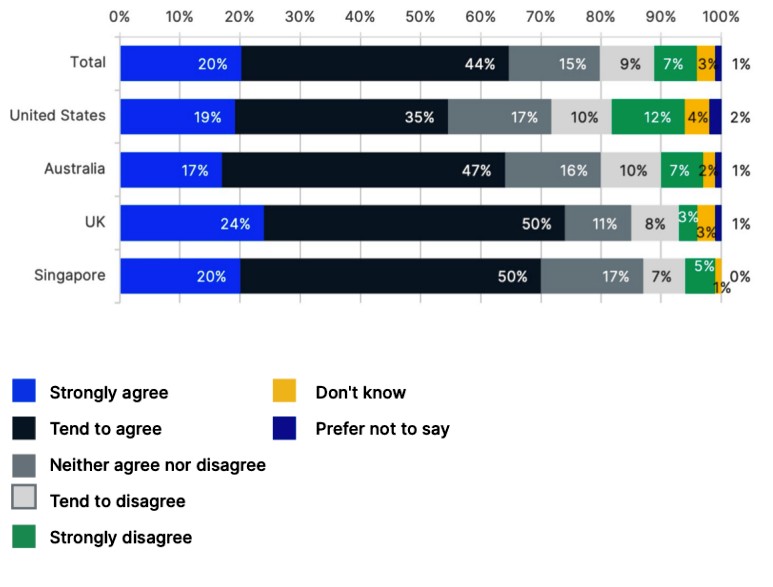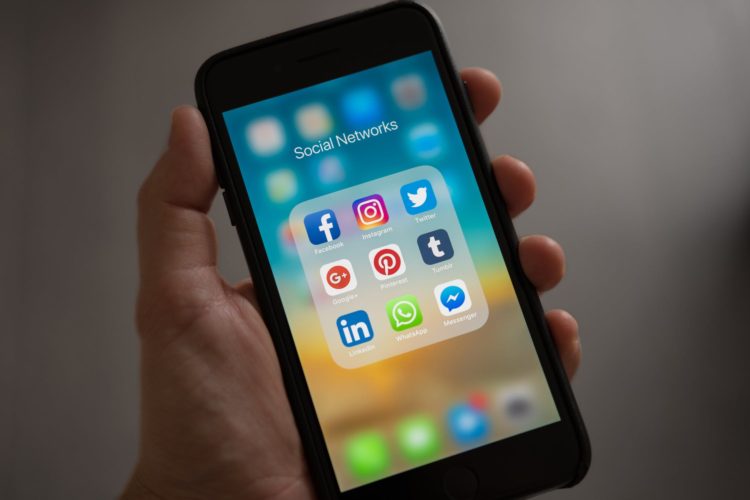In an increasingly digital world, consumers feel trapped ― sharing personal data is a requirement to use digital services. In an Imperva survey, 67% of APAC respondents feel they have no choice but to share their personal data if they want to use online services.

Source: Siler Linings report, Imperva 2022
Half of the APAC respondents said they stopped or would stop, using a company’s services following a serious data breach. This is the highest number globally – substantially higher than the average of 43% in other parts of the world.
APAC residents are willing to do this because compared to other regions, they have shared more personal data than two years ago. Close to 46% of APAC respondents reported doing this, compared to the average of 33% in other markets.
Thus, organisations serving APAC customers need to swiftly strengthen their ability to manage and protect sensitive data. Firms that fail to do so should expect to see their business and revenue impacted.
Drawing from an online YouGov survey of 6,773 consumers aged 18 and above across Singapore (1,079 respondents), Australia (1,004), the US and the UK, the Imperva No Silver Linings report noted several significant trends related to consumers’ perception of trust, data security and privacy.
Trust has hit rock bottom
- Retailers and online gaming are perceived to be the least trustworthy in keeping private information safe. Only 5% of APAC respondents trust these two groups – this is similar to global figures.
- Only 8% of APAC residents trust social media companies like Facebook, Twitter and LinkedIn. This is again comparable to figures seen in other markets.
- Government and financial organisations are most trusted. About 44% and 41% of APAC respondents, respectively, said they completely trust these organisations to keep their private information absolutely private.
- APAC residents prefer two- or multi-factor authentication (2FA/MFA). Their degree of comfort in sharing information with digital services and apps that use 2FA/MFA is consistently above the global average across different categories of information including health, financial and personal information.
The cloud is full of secrets
APAC residents admit to sharing some of their most intimate secrets on cloud messaging services, including:
- 23% have said something about a colleague, friend or family member that could ruin a relationship
- 18% have admitted saying something offensive (e.g. sexist, racist or homophobic)
- 17% have discussed sexual fantasies or fetishes
- 16% have knowingly lied about something
- 12% have talked about reproductive health issues
Leaked data has the potential to ruin lives
APAC respondents who have discussed such topics admit they could face serious consequences if their private discussions online were leaked. Some 37% of APAC respondents discussed private topics using a cloud messaging app or service. 93% admit they could face serious consequences if their private discussions online were leaked:
- 51% say they would ruin relationships with their friends/family if their conversations were uncovered
- 45% would feel violated by the experience
- 41% would have their mental health impacted
- 35% could be left open to blackmail
- 29% could lose or be forced to leave their job

George Lee, regional VP, Imperva Asia Pacific & Japan, acknowledges that consumers face a disheartening Catch-22 scenario: they need digital services to operate in modern life, but their trust in these services is deteriorating.
“Businesses need to focus on who is accessing their data and protecting the paths a cybercriminal might exploit to get to the data. Taking a data-centric security approach must be part of every organisation’s strategy as consumers grow increasingly cynical of the services they use.”
George Lee




